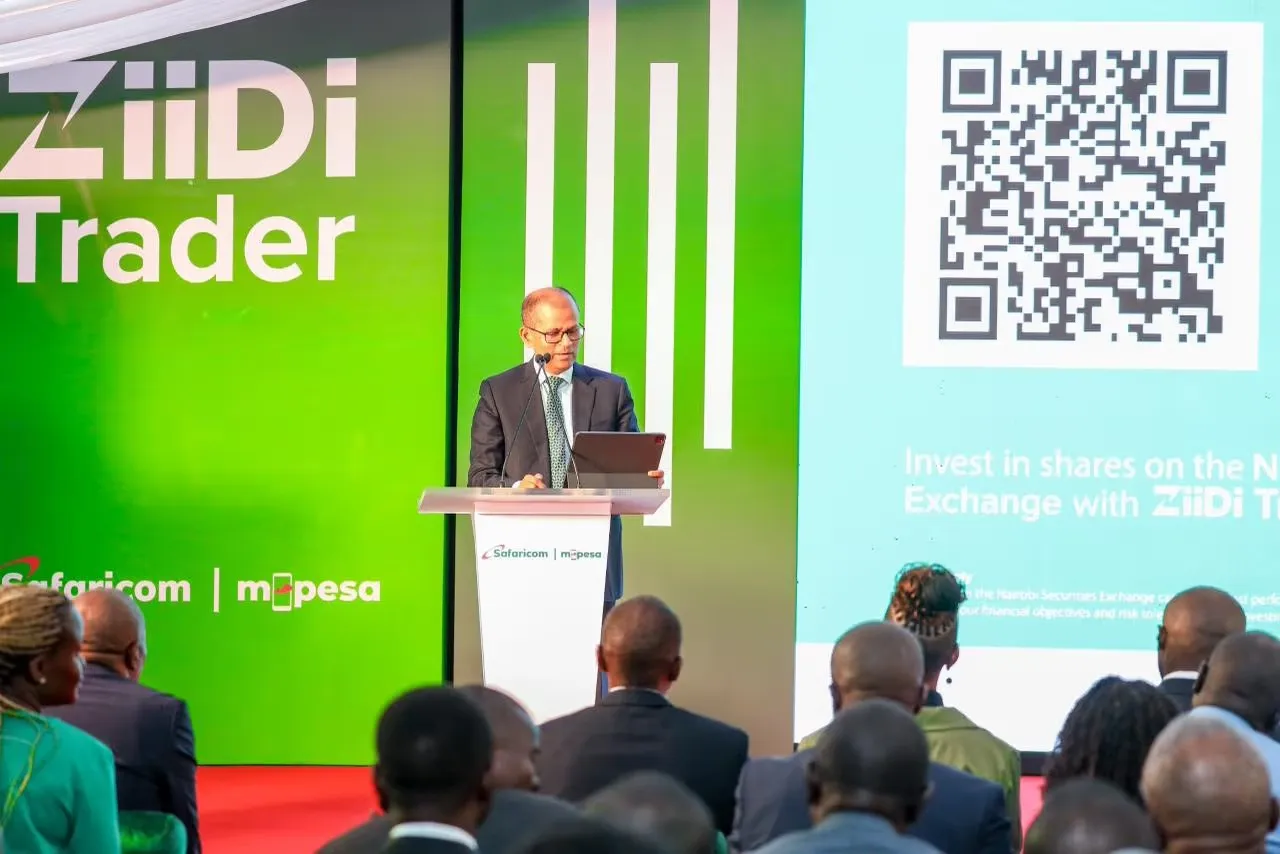Ethiopia is navigating critical hurdles in establishing its nascent stock market as the Ethiopian Securities and Exchange Commission (ESEC) reports alarmingly low participation from brokers. This shortage threatens to delay the stock market’s successful launch, which is expected to be a transformative tool for economic growth, financial inclusion, and the mobilization of capital.
The Role of Brokers in a Stock Market Ecosystem
Brokers are the lifeblood of any stock market, acting as intermediaries who facilitate transactions, provide essential investment advice, and help maintain market liquidity. Their key roles include:
- Transaction Facilitation: Managing the buying and selling of securities such as stocks and bonds while ensuring compliance with market regulations.
- Investor Education: Offering guidance to individual and institutional investors, particularly in a market like Ethiopia’s, which is new and requires significant investor hand-holding.
- Liquidity Maintenance: By matching buy and sell orders, brokers keep the market fluid and operational, encouraging more investor participation.
- Building Trust: A well-regulated and professional brokerage community enhances investor confidence, crucial for sustained growth.
Without sufficient brokers, these functions falter, undermining the market’s credibility and efficiency.
Current State of Broker Participation
Michael Habte, the Head of Operations at the ESEC, expressed concern over the lackluster response to calls for broker registration. In an interview with Ahadu Radio, he highlighted that the number of brokers who have registered is far below what is required for the market’s smooth operation.
“Despite our awareness campaigns and calls for participation, the response has been disappointingly low. Brokers are the backbone of any stock market, and their absence poses a serious challenge to our rollout,” Habte remarked.
The Commission’s data indicates a knowledge gap at the national level, with many individuals and organizations either unaware of the opportunities within the brokerage sector or uncertain about how to engage.
Awareness Campaigns and Collaborative Efforts
To address this, the Commission is working closely with Ethiopian Document Investments to increase awareness and educate the public about the stock market’s benefits. The campaigns aim to inform potential brokers and investors about the opportunities for growth and financial inclusion that the stock market offers.
However, these efforts face cultural and systemic barriers. Financial literacy in Ethiopia remains low compared to other African countries with established stock markets, such as Kenya and South Africa. Bridging this gap requires sustained campaigns, partnerships with educational institutions, and leveraging technology to reach rural and urban populations alike.
Alternative Strategies Under Consideration
If the broker participation rate does not improve, the ESEC is considering alternative strategies. These include:
- Engaging Financial Institutions: The Commission is exploring the possibility of involving banks, microfinance institutions, and other financial entities to fill the gap.
- Streamlined Registration Processes: Simplifying registration requirements to attract more participants.
- Incentive Programs: Offering financial incentives, such as reduced licensing fees or tax breaks, for early registrants.
These measures aim to ensure that essential market functions, such as transaction facilitation and liquidity maintenance, are not compromised.
The Stock Market’s Economic Potential
The establishment of a stock market is seen as a cornerstone for Ethiopia’s economic development. It offers businesses access to much-needed capital, provides investors with a platform to grow their wealth, and supports the government’s broader goals of modernizing the financial system.
Neighboring countries with active stock markets, such as Kenya’s Nairobi Securities Exchange (NSE), have demonstrated how capital markets can drive economic growth by attracting foreign direct investment, encouraging entrepreneurship, and fostering job creation. Ethiopia aspires to replicate these successes, but broker participation is critical to achieving these outcomes.
Challenges Unique to Ethiopia
Ethiopia faces unique challenges in building its stock market, including:
- Low Financial Literacy: Many Ethiopians are unfamiliar with stock market operations, leading to hesitancy in participating as investors or brokers.
- Regulatory Framework Development: While the ESEC is laying the groundwork for a robust regulatory framework, its enforcement and acceptance remain in early stages.
- Economic Structure: Ethiopia’s economy, traditionally dominated by agriculture, is only beginning to diversify. Creating a culture of investment will require time and concerted efforts.
- Infrastructure Gaps: Limited access to internet and financial technology in rural areas may hinder widespread participation.
Government and Stakeholder Support
Recognizing the stock market’s potential, the Ethiopian government has pledged full support to the initiative. Policies are being developed to encourage private-sector participation, including tax incentives for companies that list on the stock exchange.
Additionally, international development partners and organizations such as the World Bank have expressed interest in supporting Ethiopia’s capital market development through technical assistance and funding.
What Lies Ahead?
Despite the current challenges, optimism remains high among stakeholders. Lessons from other African countries, such as Rwanda and Ghana, show that overcoming initial hurdles can lead to long-term success.
For Ethiopia, the road to a fully functional stock market involves:
- Enhanced Collaboration: Between the government, private sector, and international partners to address structural and cultural barriers.
- Capacity Building: Training brokers, regulators, and investors to ensure market readiness.
- Technology Adoption: Leveraging digital platforms to simplify transactions and expand access, particularly in underserved regions.
Conclusion
The Ethiopian stock market represents a monumental step in the country’s economic evolution. However, its success hinges on active participation from brokers and other market players. The current broker shortage serves as a wake-up call for more aggressive awareness campaigns and innovative solutions to attract participants.
By addressing these challenges head-on, Ethiopia has the potential to establish a thriving stock market that not only boosts economic growth but also sets the stage for a more inclusive and dynamic financial system.
Ready to take your career to the next level? Join our dynamic courses: ACCA, HESI A2, ATI TEAS 7 and HESI EXIT !🌟 Dive into a world of opportunities and empower yourself for success. Explore more at Serrari Ed and start your exciting journey today! ✨
photo source: Google
By: Montel Kamau
Serrari Financial Analyst
18th November, 2024
Article, Financial and News Disclaimer
The Value of a Financial Advisor
While this article offers valuable insights, it is essential to recognize that personal finance can be highly complex and unique to each individual. A financial advisor provides professional expertise and personalized guidance to help you make well-informed decisions tailored to your specific circumstances and goals.
Beyond offering knowledge, a financial advisor serves as a trusted partner to help you stay disciplined, avoid common pitfalls, and remain focused on your long-term objectives. Their perspective and experience can complement your own efforts, enhancing your financial well-being and ensuring a more confident approach to managing your finances.
Disclaimer: This article is for informational purposes only and does not constitute financial advice. Readers are encouraged to consult a licensed financial advisor to obtain guidance specific to their financial situation.
Article and News Disclaimer
The information provided on www.serrarigroup.com is for general informational purposes only. While we strive to keep the information up to date and accurate, we make no representations or warranties of any kind, express or implied, about the completeness, accuracy, reliability, suitability, or availability with respect to the website or the information, products, services, or related graphics contained on the website for any purpose. Any reliance you place on such information is therefore strictly at your own risk.
www.serrarigroup.com is not responsible for any errors or omissions, or for the results obtained from the use of this information. All information on the website is provided on an as-is basis, with no guarantee of completeness, accuracy, timeliness, or of the results obtained from the use of this information, and without warranty of any kind, express or implied, including but not limited to warranties of performance, merchantability, and fitness for a particular purpose.
In no event will www.serrarigroup.com be liable to you or anyone else for any decision made or action taken in reliance on the information provided on the website or for any consequential, special, or similar damages, even if advised of the possibility of such damages.
The articles, news, and information presented on www.serrarigroup.com reflect the opinions of the respective authors and contributors and do not necessarily represent the views of the website or its management. Any views or opinions expressed are solely those of the individual authors and do not represent the website's views or opinions as a whole.
The content on www.serrarigroup.com may include links to external websites, which are provided for convenience and informational purposes only. We have no control over the nature, content, and availability of those sites. The inclusion of any links does not necessarily imply a recommendation or endorsement of the views expressed within them.
Every effort is made to keep the website up and running smoothly. However, www.serrarigroup.com takes no responsibility for, and will not be liable for, the website being temporarily unavailable due to technical issues beyond our control.
Please note that laws, regulations, and information can change rapidly, and we advise you to conduct further research and seek professional advice when necessary.
By using www.serrarigroup.com, you agree to this disclaimer and its terms. If you do not agree with this disclaimer, please do not use the website.
www.serrarigroup.com, reserves the right to update, modify, or remove any part of this disclaimer without prior notice. It is your responsibility to review this disclaimer periodically for changes.
Serrari Group 2025
















